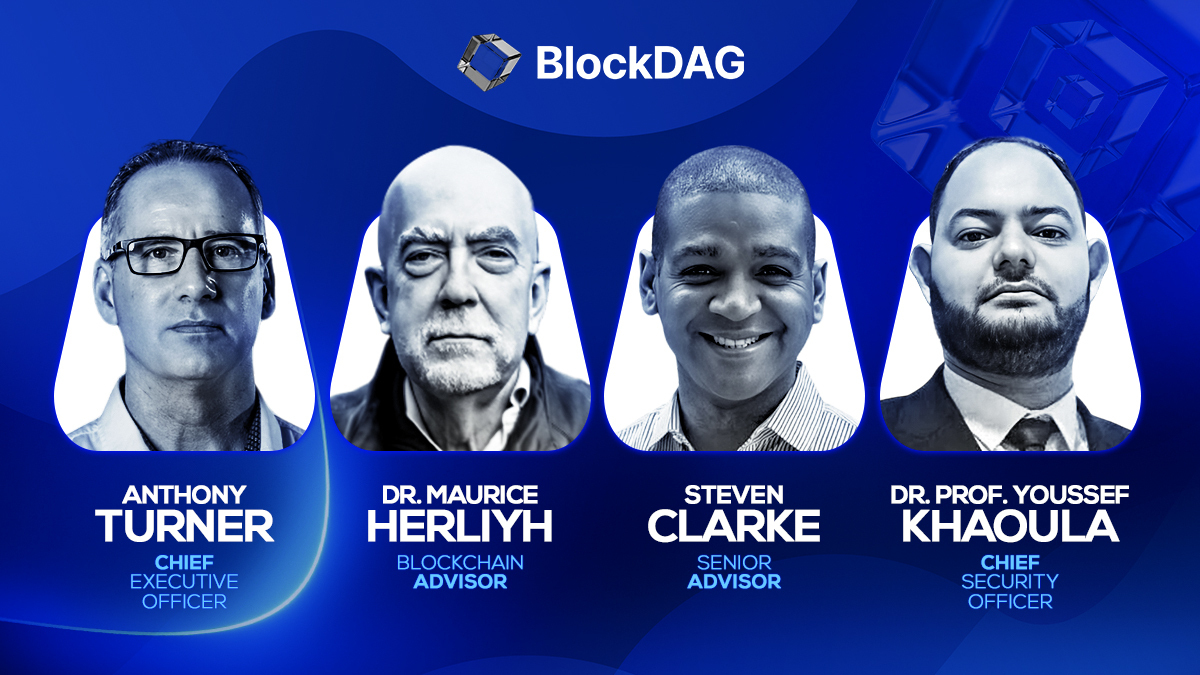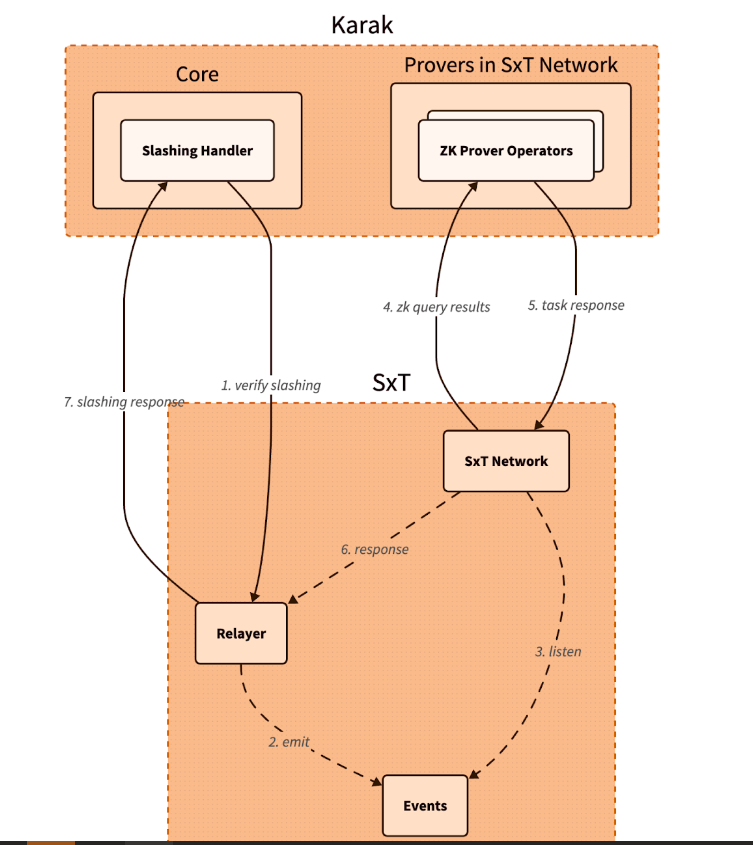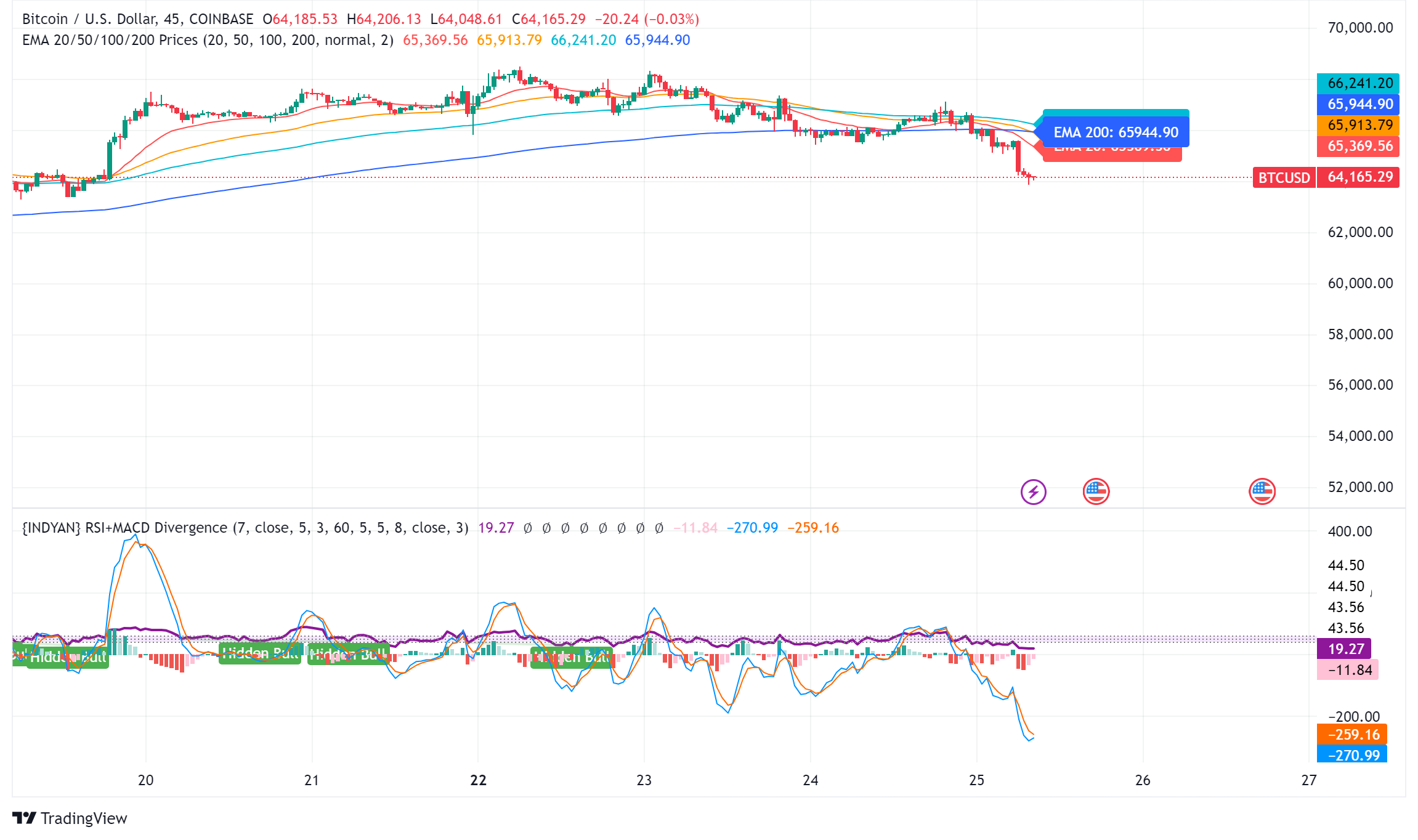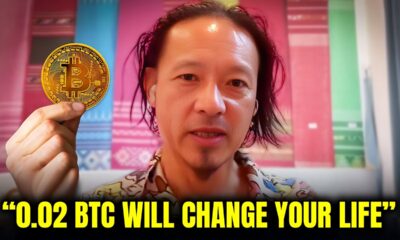Tech
Decoding the Future: Justin Wales’ visionary guide to navigating cryptocurrency law and Web3

Navigating the complex and ever-changing world of cryptocurrencies and legal frameworks requires a sharp mind and a solid resource. Enter Justin Wales, an experienced cryptocurrency lawyer and author of “The Cryptocurrency Legal Handbook: A Guide to the Laws of Cryptocurrencies, Web3, and the Decentralized World.” This manual is not just an introduction, but a deep dive into the intricacies of cryptocurrency law, tailored to demystify the topic for beginners and experts alike.
With over a decade of industry experience, Justin has created a resource that addresses the burning questions of aspiring lawyers and experienced professionals. What inspired you to write this essential guide? How do you address those without a legal or technical background? These questions and more will be explored in our in-depth discussion below. Join us as we delve into the motivations, challenges, and triumphs of creating a handbook that aims to educate and inspire its readers.
Olga V. Mack: What pivotal moment convinced you to write “The Crypto Legal Handbook”?
Justin Wales: I have been a cryptocurrency lawyer for over a decade, and in that time the industry has grown tremendously in scope, scope and regulatory complexity. I receive questions every day from aspiring lawyers and law students interested in learning more about cryptocurrency law asking where to start. I didn’t know of any resource to recommend that offered a clear and engaging introduction to cryptocurrencies without assuming any knowledge of law or technology, so I wrote “The Crypto Legal Handbook” as a place for those new to the industry to get started.
OM: How do you predict external advisors will better evolve to address the unique challenges of the cryptocurrency industry?
JW: Relatively few lawyers at top law firms truly understand cryptocurrencies. When you work with some of these firms, you tend to hope that an associate will be brought onto the team who understands the technology and can help coach the more senior partners internally. This dynamic is starting to change. As experienced cryptocurrency associates gain seniority and are given the authority to lead the charge, I foresee a significant improvement in the quality of legal services provided by top firms.
OM: What key skills or knowledge areas are crucial for law students wanting to enter the legal cryptocurrency market?
JW: I firmly believe that successful cryptocurrency lawyers must be industry experts and passionate about the industry’s goals. While it is possible to train someone in substantive law, starting with my book, for example, it is harder to find candidates who are enthusiastic about staying up to date on the rapid developments in cryptographic technologies and regulations. This enthusiasm is greatly appreciated by in-house consultants, as the fast pace requires a proactive commitment to continuous learning.
OM: You expressed concern about the emphasis on specialization in law schools. Could you discuss the potential downsides of this trend, especially for newer fields like cryptocurrency law?
JW: To be a great lawyer, you should try to learn everything about your client’s business. This means being knowledgeable enough to discuss any issues they may encounter. Ideally, you become the first point of contact for your client’s concerns, coordinating with specialists and considering broader business implications. However, law schools and large firms often produce only specialists and discourage a more general, business-focused approach. I advise young lawyers to seek out different cases beyond their immediate specialty to broaden their expertise.
OM: How does “The Crypto Legal Handbook” appeal to those without a legal or technical background?
JW: I wrote this for people who are not at all familiar with the law. It is written in a narrative style that takes you through the history and politics behind the different regulations impacting financial technologies. It assumes no experience in cryptocurrency, technology or law.
OM: Considering the rapid evolution of blockchain technology, how do you plan to keep the manual updated?
JW: That’s really the challenge of a project like this: I want someone to be able to pick up this book at any time and immediately get up to speed. current state of the cryptocurrency industry. I also want it to serve as a resource for law school students taking regulatory or cryptocurrency courses. In the meantime, I plan to post updates before each fall and spring semester and post material updates on my website.
OM: Can you share a case study or example from the book that particularly highlights the complexities of crypto regulations?
JW: An unresolved issue in the cryptocurrency industry is determining when an asset qualifies as a “security” under federal regulations. Additionally, defining whether an asset is a “commodity” under the CEA is a separate but often confusing concept. The distinction between commodity and safety regulations and why they are overseen by separate regulators is often confusing to young lawyers. The book explores the histories and jurisprudence of these different regulators, both cryptographic and traditional, to clarify how these parallel frameworks have evolved.
OM: What common misconceptions about crypto law do you intend to clarify with your manual?
JW: After reading this book, it will be clear that, despite what some say, the industry is not unregulated. It is subject to the oversight of various federal regulators and various state laws at different levels.
OM: How has the reception of the book influenced your opinions or plans for future editions?
JW: Everyone has been very positive about the book, and as of this interview, nearly 20 law school professors have indicated that they will include it in their programs. I have been surprised by the number of international readers who have reached out to help create supplements for their respective countries’ crypto regulations. Over the summer, I plan to release supplements for Canada and India, with others likely to follow.
OM: What advice would you give to someone who reads your book and is inspired to start a career in cryptocurrency law?
JW: Don’t wait for permission to get involved. While it is important to learn from experienced lawyers, the most successful cryptocurrency lawyers actively participate in the online industry debate and build their business by contributing to the space.
Concluding our exploration into the depths of the “Cryptocurrency Legal Handbook” and into the mind of Justin Wales, it’s clear that this resource is more than just a guide: it’s a beacon for the curious, the aspiring, and the dedicated professionals navigating the intricate world of cryptographic law. Justin’s journey from recognizing a gap in accessible information to publishing a manual that serves as a cornerstone for legal education in the cryptocurrency field shows the power of initiative and vision in the face of a rapidly evolving industry.
Remember Justin’s advice for those inspired by this primer: Don’t wait for permission to dive into cryptocurrency law. Seize the learning and engagement opportunities the camp offers. As you flip through the pages of this handbook, let it inform and inspire you to help shape this dynamic and crucial area of law. Whether you are a student, a professional, or simply a curious mind, the journey in cryptocurrency law begins with knowledge and flourishes through active engagement. Let “The Crypto Legal Handbook” be your first step towards a challenging and rewarding career in the decentralized world.
 Olga V. Mack is a member of CodeX, The Stanford Center for Legal Informatics, and a generative AI editor at law.MIT. Olga embraces legal innovation and has dedicated her career to improving and defining the future of law. She believes that the legal profession will emerge even stronger, more resilient and more inclusive than before by embracing technology. Olga is also an award-winning legal advisor, operations professional, startup advisor, public speaker, adjunct professor, and entrepreneur. She wrote Get on board: Earn your ticket to a seat on the corporate board of directors, Smart contract security fundamentalsAND Blockchain value: transforming business models, societies and communities. You are working on three books: Visual IQ for Lawyers (ABA 2024), The Rise of Product Lawyers: An Analytical Framework to Systematics Advise Your Clients Throughout the Product Lifecycle (Globe Law and Business 2024), and Legal Operations in the Age of AI and Data ( Globe Law and Business 2024). You can follow Olga on LinkedIn and Twitter @olgavmack.
Olga V. Mack is a member of CodeX, The Stanford Center for Legal Informatics, and a generative AI editor at law.MIT. Olga embraces legal innovation and has dedicated her career to improving and defining the future of law. She believes that the legal profession will emerge even stronger, more resilient and more inclusive than before by embracing technology. Olga is also an award-winning legal advisor, operations professional, startup advisor, public speaker, adjunct professor, and entrepreneur. She wrote Get on board: Earn your ticket to a seat on the corporate board of directors, Smart contract security fundamentalsAND Blockchain value: transforming business models, societies and communities. You are working on three books: Visual IQ for Lawyers (ABA 2024), The Rise of Product Lawyers: An Analytical Framework to Systematics Advise Your Clients Throughout the Product Lifecycle (Globe Law and Business 2024), and Legal Operations in the Age of AI and Data ( Globe Law and Business 2024). You can follow Olga on LinkedIn and Twitter @olgavmack.
Tech
Harvard Alumni, Tech Moguls, and Best-Selling Authors Drive Nearly $600 Million in Pre-Order Sales

BlockDAG Network’s history is one of innovation, perseverance, and a vision to push the boundaries of blockchain technology. With Harvard alumni, tech moguls, and best-selling authors at the helm, BlockDAG is rewriting the rules of the cryptocurrency game.
CEO Antony Turner, inspired by the successes and shortcomings of Bitcoin and Ethereum, says, “BlockDAG leverages existing technology to push the boundaries of speed, security, and decentralization.” This powerhouse team has led a staggering 1,600% price increase in 20 pre-sale rounds, raising over $63.9 million. The secret? Unparalleled expertise and a bold vision for the future of blockchain.
Let’s dive into BlockDAG’s success story and find out what the future holds for this cryptocurrency.
The Origin: Why BlockDAG Was Created
In a recent interview, BlockDAG CEO Antony Turner perfectly summed up why the market needs BlockDAG’s ongoing revolution. He said:
“The creation of BlockDAG was inspired by Bitcoin and Ethereum, their successes and their shortcomings.
If you look at almost any new technology, it is very rare that the first movers remain at the forefront forever. Later incumbents have a huge advantage in entering a market where the need has been established and the technology is no longer cutting edge.
BlockDAG has done just that: our innovation is incorporating existing technology to provide a better solution, allowing us to push the boundaries of speed, security, and decentralization.”
The Present: How Far Has BlockDAG Come?
BlockDAG’s presale is setting new benchmarks in the cryptocurrency investment landscape. With a stunning 1600% price increase over 20 presale lots, it has already raised over $63.9 million in capital, having sold over 12.43 billion BDAG coins.
This impressive performance underscores the overwhelming confidence of investors in BlockDAG’s vision and leadership. The presale attracted over 20,000 individual investors, with the BlockDAG community growing exponentially by the hour.

These monumental milestones have been achieved thanks to the unparalleled skills, experience and expertise of BlockDAG’s management team:
Antony Turner – Chief Executive Officer
Antony Turner, CEO of BlockDAG, has over 20 years of experience in the Fintech, EdTech, Travel and Crypto industries. He has held senior roles at SPIRIT Blockchain Capital and co-founded Axona-Analytics and SwissOne. Antony excels in financial modeling, business management and scaling growth companies, with expertise in trading, software, IoT, blockchain and cryptocurrency.
Director of Communications
Youssef Khaoulaj, CSO of BlockDAG, is a Smart Contract Auditor, Metaverse Expert, and Red Team Hacker. He ensures system security and disaster preparedness, and advises senior management on security issues.

advisory Committee
Steven Clarke-Martin, a technologist and consultant, excels in enterprise technology, startups, and blockchain, with a focus on DAOs and smart contracts. Maurice Herlihy, a Harvard and MIT graduate, is an award-winning computer scientist at Brown University, with experience in distributed computing and consulting roles, most notably at Algorand.
The Future: Becoming the Cryptocurrency with the Highest Market Cap in the World
Given its impressive track record and a team of geniuses working tirelessly behind the scenes, BlockDAG is quickly approaching the $600 million pre-sale milestone. This crypto powerhouse will soon enter the top 30 cryptocurrencies by market cap.
Currently trading at $0.017 per coin, BlockDAG is expected to hit $1 million in the coming months, with the potential to hit $30 per coin by 2030. Early investors have already enjoyed a 1600% ROI by batch 21, fueling a huge amount of excitement around BlockDAG’s presale. The platform is seeing significant whale buying, and demand is so high that batch 21 is almost sold out. The upcoming batch is expected to drive prices even higher.

Invest in BlockDAG Pre-Sale Now:
Pre-sale: https://purchase.blockdag.network
Website: https://blockdag.network
Telegram: https://t.me/blockDAGnetwork
Discord: Italian: https://discord.gg/Q7BxghMVyu
No spam, no lies, just insights. You can unsubscribe at any time.
Tech
How Karak’s Latest Tech Integration Could Make Data Breaches Obsolete

- Space and Time uses zero-knowledge proofs to ensure secure and tamper-proof data processing for smart contracts and enterprises.
- The integration facilitates faster development and deployment of Distributed Secure Services (DSS) on the Karak platform.
Karak, a platform known for its strong security capabilities, is enhancing its Distributed Secure Services (DSS) by integrating Space and Time as a zero-knowledge (ZK) coprocessor. This move is intended to strengthen trustless operations across its network, especially in slashing and rewards mechanisms.
Space and Time is a verifiable processing layer that uses zero-knowledge proofs to ensure that computations on decentralized data warehouses are secure and untampered with. This system enables smart contracts, large language models (LLMs), and enterprises to process data without integrity concerns.
The integration with Karak will enable the platform to use Proof of SQL, a new ZK-proof approach developed by Space and Time, to confirm that SQL query results are accurate and have not been tampered with.
One of the key features of this integration is the enhancement of DSS on Karak. DSS are decentralized services that use re-staked assets to secure the various operations they provide, from simple utilities to complex marketplaces. The addition of Space and Time technology enables faster development and deployment of these services, especially by simplifying slashing logic, which is critical to maintaining security and trust in decentralized networks.

Additionally, Space and Time is developing its own DSS for blockchain data indexing. This service will allow community members to easily participate in the network by running indexing nodes. This is especially beneficial for applications that require high security and decentralization, such as decentralized data indexing.
The integration architecture follows a detailed and secure flow. When a Karak slashing contract needs to verify a SQL query, it calls the Space and Time relayer contract with the required SQL statement. This contract then emits an event with the query details, which is detected by operators in the Space and Time network.
These operators, responsible for indexing and monitoring DSS activities, validate the event and route the work to a verification operator who runs the query and generates the necessary ZK proof.
The result, along with a cryptographic commitment on the queried data, is sent to the relayer contract, which verifies and returns the data to the Karak cutter contract. This end-to-end process ensures that the data used in decision-making, such as determining penalties within the DSS, is accurate and reliable.
Karak’s mission is to provide universal security, but it also extends the capabilities of Space and Time to support multiple DSSs with their data indexing needs. As these technologies evolve, they are set to redefine the secure, decentralized computing landscape, making it more accessible and efficient for developers and enterprises alike. This integration represents a significant step towards a more secure and verifiable digital infrastructure in the blockchain space.
Website | X (Twitter) | Discord | Telegram
No spam, no lies, just insights. You can unsubscribe at any time.
Tech
Cryptocurrency Payments: Should CFOs Consider This Ferrari-Approved Trend?

Iconic Italian luxury carmaker Ferrari has announced the expansion of its cryptocurrency payment system to its European dealer network.
The move, which follows a successful launch in North America less than a year ago, raises a crucial question for CFOs across industries: Is it time to consider accepting cryptocurrency as a form of payment for your business?
Ferrari’s move isn’t an isolated one. It’s part of a broader trend of companies embracing digital assets. As of 2024, we’re seeing a growing number of companies, from tech giants to traditional retailers, accepting cryptocurrencies.
This change is determined by several factors:
- Growing mainstream adoption of cryptocurrencies
- Growing demand from tech-savvy and affluent consumers
- Potential for faster and cheaper international transactions
- Desire to project an innovative brand image
Ferrari’s approach is particularly noteworthy. They have partnered with BitPay, a leading cryptocurrency payment processor, to allow customers to purchase vehicles using Bitcoin, Ethereum, and USDC. This satisfies their tech-savvy and affluent customer base, many of whom have large digital asset holdings.
Navigating Opportunities and Challenges
Ferrari’s adoption of cryptocurrency payments illustrates several key opportunities for companies considering this move. First, it opens the door to new customer segments. By accepting cryptocurrency, Ferrari is targeting a younger, tech-savvy demographic—people who have embraced digital assets and see them as a legitimate form of value exchange. This strategy allows the company to connect with a new generation of affluent customers who may prefer to conduct high-value transactions in cryptocurrency.
Second, cryptocurrency adoption increases global reach. International payments, which can be complex and time-consuming with traditional methods, become significantly easier with cryptocurrency transactions. This can be especially beneficial for businesses that operate in multiple countries or deal with international customers, as it potentially reduces friction in cross-border transactions.
Third, accepting cryptocurrency positions a company as innovative and forward-thinking. In today’s fast-paced business environment, being seen as an early adopter of emerging technologies can significantly boost a brand’s image. Ferrari’s move sends a clear message that they are at the forefront of financial innovation, which can appeal to customers who value cutting-edge approaches.
Finally, there is the potential for cost savings. Traditional payment methods, especially for international transactions, often incur substantial fees. Cryptocurrency transactions, on the other hand, can offer lower transaction costs. For high-value purchases, such as luxury cars, these savings could be significant for both the business and the customer.
While the opportunities are enticing, accepting cryptocurrency payments also presents significant challenges that businesses must address. The most notable of these is volatility. Cryptocurrency values can fluctuate dramatically, sometimes within hours, posing potential risk to businesses that accept them as payment. Ferrari addressed this challenge by implementing a system that instantly converts cryptocurrency received into traditional fiat currencies, effectively mitigating the risk of value fluctuations.
Regulatory uncertainty is another major concern. The legal landscape surrounding cryptocurrencies is still evolving in many jurisdictions around the world. This lack of clear and consistent regulations can create compliance challenges for companies, especially those operating internationally. Companies must remain vigilant and adaptable as new laws and regulations emerge, which can be a resource-intensive process.
Implementation costs are also a significant obstacle. Integrating cryptocurrency payment systems often requires substantial investment in new technology infrastructure and extensive staff training. This can be especially challenging for small businesses or those with limited IT resources. The costs are not just financial; a significant investment of time is also required to ensure smooth implementation and operation.
Finally, security concerns loom large in the world of cryptocurrency transactions. While blockchain technology offers some security benefits, cryptocurrency transactions still require robust cybersecurity measures to protect against fraud, hacks, and other malicious activity. Businesses must invest in robust security protocols and stay up-to-date on the latest threats and protections, adding another layer of complexity and potential costs to accepting cryptocurrency payments.
Strategic Considerations for CFOs
If you’re thinking of following in Ferrari’s footsteps, here are the key factors to consider:
- Risk Assessment: Carefully evaluate potential risks to your business, including financial, regulatory, and reputational risks.
- Market Analysis: Evaluate whether your customer base is significantly interested in using cryptocurrencies for payments.
- Technology Infrastructure: Determine the costs and complexities of implementing a cryptographic payment system that integrates with existing financial processes.
- Regulatory Compliance: Ensure that cryptocurrency acceptance is in line with local regulations in all markets you operate in. Ferrari’s gradual rollout demonstrates the importance of this consideration.
- Financial Impact: Analyze how accepting cryptocurrency could impact your cash flow, accounting practices, and financial reporting.
- Partnership Evaluation: Consider partnering with established crypto payment processors to reduce risk and simplify implementation.
- Employee Training: Plan comprehensive training to ensure your team is equipped to handle cryptocurrency transactions and answer customer questions.
While Ferrari’s adoption of cryptocurrency payments is exciting, it’s important to consider this trend carefully.
A CFO’s decision to adopt cryptocurrency as a means of payment should be based on a thorough analysis of your company’s specific needs, risk tolerance, and strategic goals. Cryptocurrency payments may not be right for every business, but for some, they could provide a competitive advantage in an increasingly digital marketplace.
Remember that the landscape is rapidly evolving. Stay informed about regulatory changes, technological advancements, and changing consumer preferences. Whether you decide to accelerate your crypto engines now or wait in the pit, keeping this payment option on your radar is critical to navigating the future of business transactions.
Was this article helpful?
Yes No
Sign up to receive your daily business insights
Tech
Bitcoin Tumbles as Crypto Market Selloff Mirrors Tech Stocks’ Plunge

The world’s largest cryptocurrency, Bitcoin (BTC), suffered a significant price decline on Wednesday, falling below $65,000. The decline coincides with a broader market sell-off that has hit technology stocks hard.
Cryptocurrency Liquidations Hit Hard
CoinGlass data reveals a surge in long liquidations in the cryptocurrency market over the past 24 hours. These liquidations, totaling $220.7 million, represent forced selling of positions that had bet on price increases. Bitcoin itself accounted for $14.8 million in long liquidations.
Ethereum leads the decline
Ethereal (ETH), the second-largest cryptocurrency, has seen a steeper decline than Bitcoin, falling nearly 8% to trade around $3,177. This decline mirrors Bitcoin’s price action, suggesting a broader market correction.
Cryptocurrency market crash mirrors tech sector crash
The cryptocurrency market decline appears to be linked to the significant losses seen in the U.S. stock market on Wednesday. Stock market listing The index, heavily weighted toward technology stocks, posted its sharpest decline since October 2022, falling 3.65%.
Analysts cite multiple factors
Several factors may have contributed to the cryptocurrency market crash:
- Tech earnings are underwhelming: Earnings reports from tech giants like Alphabet are disappointing (Google(the parent company of), on Tuesday, triggered a sell-off in technology stocks with higher-than-expected capital expenditures that could have repercussions on the cryptocurrency market.
- Changing Political Landscape: The potential impact of the upcoming US elections and changes in Washington’s policy stance towards cryptocurrencies could influence investor sentiment.
- Ethereal ETF Hopes on the line: While bullish sentiment around a potential U.S. Ethereum ETF initially boosted the market, delays or rejections could dampen enthusiasm.
Analysts’ opinions differ
Despite the short-term losses, some analysts remain optimistic about Bitcoin’s long-term prospects. Singapore-based cryptocurrency trading firm QCP Capital believes Bitcoin could follow a similar trajectory to its post-ETF launch all-time high, with Ethereum potentially converging with its previous highs on sustained institutional interest.
Rich Dad Poor Dad Author’s Prediction
Robert Kiyosaki, author of the best-selling Rich Dad Poor Dad, predicts a potential surge in the price of Bitcoin if Donald Trump is re-elected as US president. He predicts a surge to $105,000 per coin by August 2025, fueled by a weaker dollar that is set to boost US exports.
BTC/USD Technical Outlook
Bitcoin price is currently trading below key support levels, including the $65,500 level and the 100 hourly moving average. A break below the $64,000 level could lead to further declines towards the $63,200 support zone. However, a recovery above the $65,500 level could trigger another increase in the coming sessions.
-

 Videos1 week ago
Videos1 week agoAbsolutely massive: the next higher Bitcoin leg will shatter all expectations – Tom Lee
-

 News11 months ago
News11 months agoVolta Finance Limited – Director/PDMR Shareholding
-

 News11 months ago
News11 months agoModiv Industrial to release Q2 2024 financial results on August 6
-

 News11 months ago
News11 months agoApple to report third-quarter earnings as Wall Street eyes China sales
-

 News11 months ago
News11 months agoNumber of Americans filing for unemployment benefits hits highest level in a year
-

 News1 year ago
News1 year agoInventiva reports 2024 First Quarter Financial Information¹ and provides a corporate update
-

 News1 year ago
News1 year agoLeeds hospitals trust says finances are “critical” amid £110m deficit
-

 DeFi1 year ago
DeFi1 year ago🏴☠️ Pump.Fun operated by Insider Exploit
-

 Markets1 year ago
Markets1 year agoWhale Investments in Bitcoin Hit $100 Billion in 2024, Fueling Insane Investor Optimism ⋆ ZyCrypto
-

 Tech1 year ago
Tech1 year agoBitcoin’s Correlation With Tech Stocks Is At Its Highest Since August 2023: Bloomberg ⋆ ZyCrypto
-

 Tech1 year ago
Tech1 year agoEverything you need to know
-

 News11 months ago
News11 months agoStocks wobble as Fed delivers and Meta bounces

















